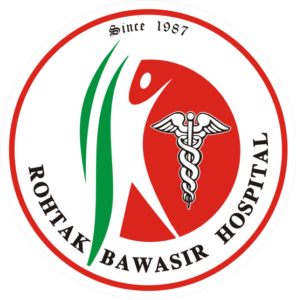Diet and Piles: Foods That Can Help or Hurt Hemorrhoid Symptoms


Updated on: 4th Jun 2024
Hemorrhoids are enlarged veins in the lower rectum and anus, sometimes referred to as piles. They may result in severe pain, bleeding, itching, and discomfort. Hemorrhoids are caused by a number of different circumstances, but food is a major element in both avoiding and treating this problem. We’ll look at meals that might make hemorrhoids worse as well as ones that can help with symptoms in this article.
Understanding Hemorrhoids

Prior to discussing the food component, it is important to know what hemorrhoids are and why they occur. There are two forms of hemorrhoids:
- Internal Hemorrhoids: Located inside the rectum, they are usually painless but can cause bleeding during bowel movements.
- External Hemorrhoids: Found under the skin around the anus, they can be painful and cause significant discomfort.
Common causes of hemorrhoids include straining during bowel movements, chronic constipation or diarrhea, prolonged sitting, and a low-fiber diet. Pregnant women are also at a higher risk due to increased pressure on the pelvic blood vessels.
The Role of Diet in Hemorrhoid Management
A well-balanced diet rich in fiber is crucial for preventing and managing hemorrhoids. Fiber helps soften the stool and increase its bulk, making it easier to pass and reducing the need to strain during bowel movements. Additionally, staying hydrated is essential for maintaining regular bowel movements.
Foods that Help Alleviate Hemorrhoid Symptoms

- High-Fiber Foods:
- Whole Grains: Include whole grains in your diet, such as barley, quinoa, brown rice, oats, and whole wheat products. Excellent dietary fiber sources like these aid in preventing constipation.
- Fruits: Rich in fiber, berries, apples, pears, and bananas support a healthy digestive system. Fruits with their skins on have more fiber.
- Vegetables: Vegetables high in fiber, such as Brussels sprouts, broccoli, carrots, and leafy greens, can help avoid hemorrhoids.
- Legumes: Great sources of dietary fiber for soups, salads, and main courses are beans, lentils, chickpeas, and peas.
- Nuts and Seeds: Walnuts, chia seeds, flaxseeds, and almonds are good sources of healthy fats and fiber for your diet.
2. Hydration:
- To keep your stools soft, you must drink a lot of water. Make an effort to drink 8–10 glasses of water every day. Clear broths and herbal teas can also help you consume more fluids.
3. Probiotics:
- Foods high in probiotics, such as fermented foods like kimchi, sauerkraut, kefir, and yogurt, support a balanced gut microbiome. A well-balanced stomach can lessen the chance of constipation and enhance digestion.
4. Healthy Fats:
- Consuming fatty fish (salmon, mackerel, and sardines) and avocados, among other healthful fat-rich foods, can help lubricate the intestines and facilitate bowel motions.
Foods to Avoid or Limit

- Low-Fiber Foods:
- Processed Foods: Foods low in fiber and prone to constipation include white bread, white rice, pastries, and other processed grains.
- Fast Food: The high fat content and poor fiber content of many fast food items might exacerbate hemorrhoid symptoms.
2. Spicy Foods:
- Foods high in spice have the potential to aggravate hemorrhoids by irritating the digestive system. It could be recommended to restrict your consumption of spicy foods if you are prone to hemorrhoids.
3. Caffeine and Alcohol:
- Caffeine and alcohol are both known to dehydrate the body, which can result in firmer stools and more straining while going to the bathroom. To stay properly hydrated, cut back on your intake of alcohol and caffeinated drinks.
4. Red Meat:
- Red meat may cause constipation since it is harder to digest. Choose lean protein sources such as fish, poultry, poultry, and plant-based proteins.
5. Dairy Products:
- Dairy goods such as ice cream, cheese, and milk have been shown to induce constipation in certain individuals. Try cutting back on your dairy consumption and keep an eye out for any changes if you think it’s influencing your bowel movements.
Practical Tips for a Hemorrhoid-Friendly Diet

Gradually Increase Fiber Intake:
Introduce meals high in fiber gradually if you’re not used to eating a high-fiber diet to prevent bloating and gas. Portion sizes should be gradually increased from tiny beginnings.
Stay Hydrated:
Drink fluids during the day in addition to water. Always have a bottle of water with you, and take frequent sips.
Mindful Eating:
Eat slowly and fully chew your food. This facilitates digestion and lets your body tell when it’s full, which keeps you from overindulging.
Regular Meals:
Constipation can be avoided and stable digestion can be maintained by eating smaller, more frequent meals. Try to eat a variety of fiber-rich, protein-rich, and healthful fats in your meals.
Physical Activity:
Frequent exercise encourages a healthy digestive system and may help ward off constipation. On most days of the week, try to get in at least 30 minutes of moderate activity.
Avoid Straining:
Don’t strain or hurry when having a bowel movement. If you find it challenging, consider raising your feet while seated on the toilet with a footstool. This may facilitate bowel movements that are more in line with nature.
Sample Meal Plan for Hemorrhoid Relief

To assist you in including items that are hemorrhoid-friendly in your diet, here is an example meal plan:
Breakfast:
- Overnight Oats: Mix together almond milk, mixed berries, chia seeds, and rolled oats. After letting it sit overnight, have a high-fiber breakfast.
- Green Smoothie: Spinach, banana, Greek yogurt, flaxseeds, and a small amount of almond milk or water are blended together.
Mid-Morning Snack:
- Apple Slices with Almond Butter: A combination of fiber and healthy fats.
Lunch:
- Quinoa Salad: Add diced bell peppers, cucumbers, cherry tomatoes, chickpeas, and a squeeze of lemon juice and olive oil to the cooked quinoa.
- Lentil Soup: Lentils, carrots, celery, and onions are combined to make this filling and high-fiber soup.
Afternoon Snack:
- Yogurt with Berries: berries with lots of fiber on top of a snack heavy in probiotics.
Dinner:
- Grilled Salmon: Served with brown rice and a serving of steamed broccoli.
- Mixed Green Salad: Add walnuts, avocado, leafy greens, and a mild vinaigrette.
Evening Snack:
- Chia Pudding: Made with coconut milk, chia seeds, and a small amount of honey.
Conclusion
Dietary management of hemorrhoids is a natural and efficient way to manage symptoms and avoid flare-ups. You can significantly improve your digestive health and reduce the discomfort caused by hemorrhoids by consuming high-fiber meals, drinking plenty of water, and avoiding recognized dietary irritants. Remember that if your symptoms are severe or persistent, it’s better to speak with a healthcare provider for specific guidance and treatment choices.
Meet Our Specialists

Dr. Raj Kumar Garg (B.A.M.S.)
40+ Years of Experience

Dr. Rahul Garg (B.A.M.S.)
15+ Years of Experience

